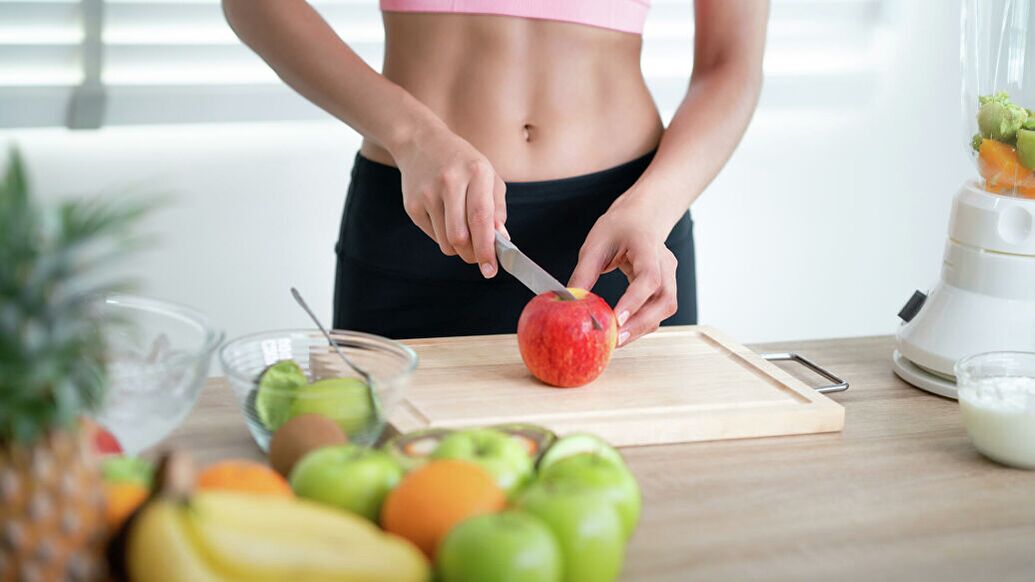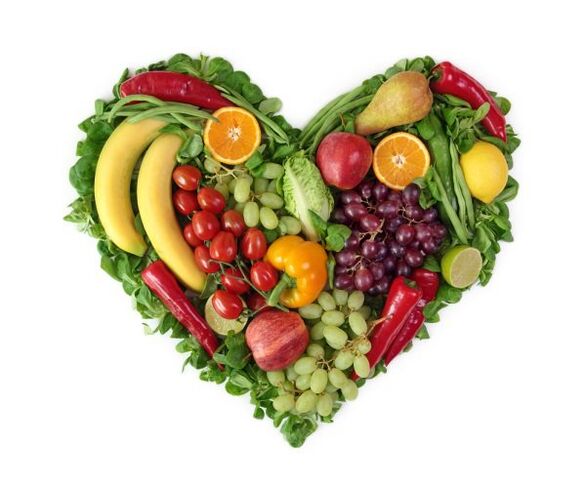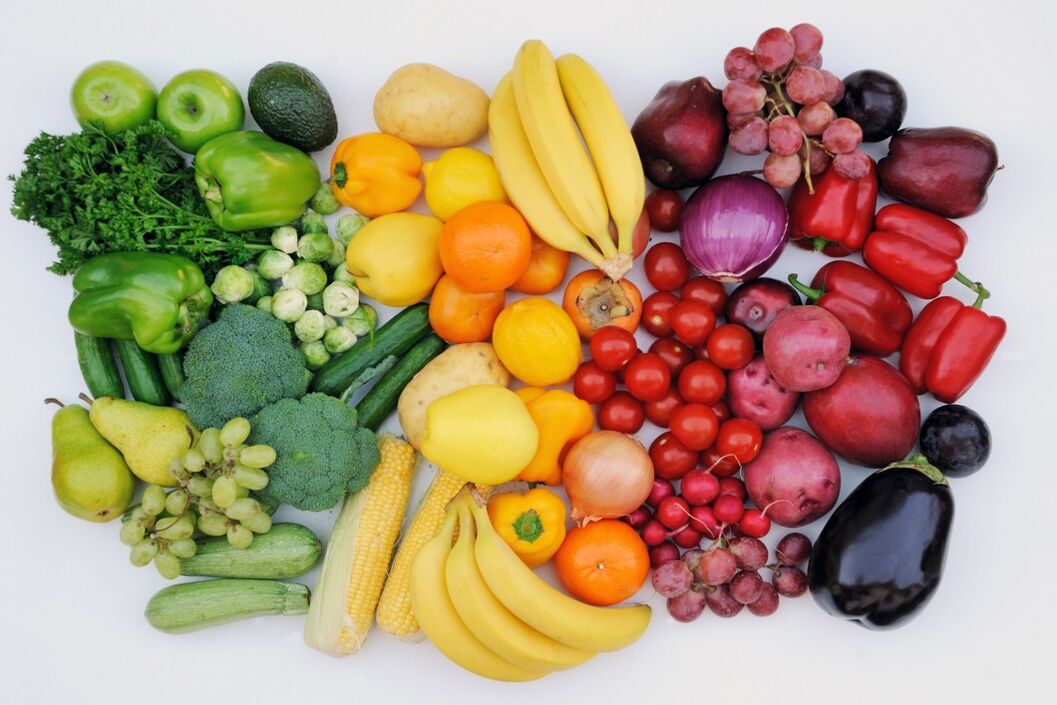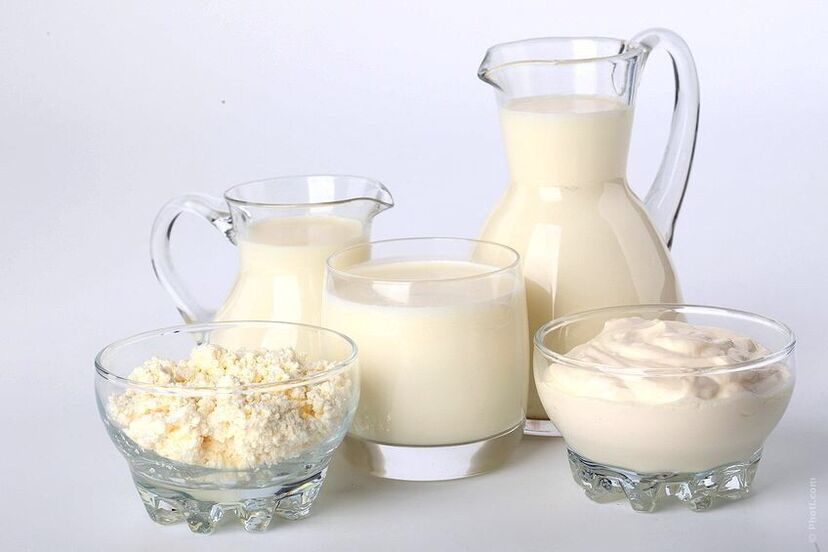A balanced diet should provide the necessary amounts to meet your daily food needs.Meanwhile, it is necessary to balance regular physical exercise and the calories consumed every day to maintain the right energy balance – ideally, you must burn as many calories as possible throughout the day.

A balanced diet should be chosen separately.Can you choose products according to your wishes - Do you want to lose weight, increase muscle mass or just support a good body?The food will be completely different in every case!
A balanced diet shows that you should eat 3-5 times a day, in a small portion, distribute protein, fat, and carbohydrates as follows:
- 50-60% of the energy should come from carbohydrates, mostly complex, whole grain bread, semolina, and only up to 10% of the energy can enter the human body from simple sugar sweets, sugar, fruits, honey.
- From 20% to 30% of energy should come from fat.However, the criteria for its consumption depend on the energy needs of the human body, age, gender, type of physical exercise or physiological state (pregnancy, disease).According to the recommendations of the World Health Organization (WHO) and numerous expert groups, fat should provide at least 15-20% of energy from the diet, up to 30% or even 35%.Of course, here we are talking about fatty acids that can be obtained from nuts and seeds, as well as unrefined oils - flax, olives, sesame.
- 10-15% of the energy should be done from proteins (preferably plant origin glucose, lentils, chickpeas).
According to a study in the field of healthy lifestyle, an average adult who exercises physically requires 30 calories per kilogram of body weight.Therefore, a woman weighing about 60-70 kg needs at least 2000 kcal per day to maintain all the processes of human life and its normal function.If you are doing a high level of physical activity at the same time - the number of calories consumed should be higher respectively.
Properly nutritious menu - Diet

Unfortunately, the often lack of time, thoughts and constant fatigue often keeps us from thinking about what and when to eat.But, in fact, eating a healthy diet is not difficult at all!If you follow some simple rules of power regularly – it will soon become a habit!So let’s not look for excuses, but start taking care of our health – remember, it’s up to you.
Regularity
Divide daily diet into small parts.Eat 4-5 times every 3-4 hours a day, which will speed up metabolism and improve metabolism.At the same time, routine eating helps maintain blood sugar at the right level, thus protecting the body from hunger, which often leads to unhealthy snacks and overeating.Breakfast is best served 1-2 hours after awakening and for dinner.It is important to observe all these rules so that you lose weight quickly without hurting your body.
Vegetables and fruits

Vegetables and fruits should be consumed in large quantities as much as possible.They should be at least half of the total diet, in the corresponding proportions: ¾-vegetables, ¼-fruits.Their health effects are due to the content of many vitamins (including vitamin C, E, folic acid, beta-carotene), minerals (including potassium, magnesium, calcium, calcium, iron) and fiber.A diet rich in vegetables and fruits can affect the correct function of the digestive, immune and hormone systems.
Cereals and cereals
It is recommended that the group use it every day.The group makes digestive, cleans the body and recharges it with energy.Cereals and cereals should be part of most dishes.They contain complex carbohydrates, the body's main source of energy.Choose bread from semolina, brown rice or a cereal (buckwheat, barley, oatmeal, millet or rye).All crystalline products are also a source of B vitamins, magnesium, zinc and fiber, which regulates the digestive tract and lowers blood cholesterol.
Milk and dairy products

In your daily diet, dairy products should be present - natural yogurt, kefir or cheese.This is the source of calcium in the human body, which is a major component of bone tissue.Because of the high content of saturated fat and salt, only pure cheese should be consumed from time to time.It is worth noting that dairy products are usually allergic, so they should choose people who are allergic or intolerant with particular caution.
Meat, fish and eggs
This group of products is a useful source of protein – our main building of muscles, so don't forget them.It is recommended to limit consumption of red meat and processed meat products to 0.5 kg/week per week, because their high consumption contributes to the development of cardiovascular disease, as recent studies have shown.You can eat poultry agricultural meat or bake it in the oven or use fish instead (preferably fat, rich in unsaturated fatty acids from the omega-3 groups).Plant proteins should also be consumed from legumes, lentils or chickpeas 1-2 times a week.
Vegetable oil

The biological value of vegetable oils depends on the amount of fatty acid components and related substances: saturated fatty acids prevalent in sesame, soy and cotton oil.Vegetable oil should be a supplement to your daily diet, preferably a gas station for salads.Rapse oil and olive oil can be used to prepare hot and cold dishes.The rest of the oil should not be subject to thermal effects.Flue and sesame oil have particularly useful properties.
Salt and sugar
Sugar and salt are those flavors we use every day, not even considering it.We put sugar in our drinks, and it is also necessary to prepare classic pastries.Without the use of salt, no daily dish will be completed.Do not consume more than 5 grams of salt (1 small tablespoon) per day.Use herbs, spices and seasonings instead of salt – this will help prevent swelling.It also limits the consumption of sugar and candy, as these are empty calories, which have no benefits.Replace them with fresh fruit, dried fruit or nuts.
Drink water

When we talk about proper nutrition, don’t forget that water is one of the main elements of a healthy diet.To get proper hydration, you need to consume at least 8 cups of pure water per day.Juices and carbonated drinks should fade into the background or disappear completely from your life.Rule for 30 minutes before drinking a glass of water before meals - the water will partially fill your stomach and will not allow you to overeat.
It will be useful:
- Eat at least five different servings of vegetables and fruits a day.
- Eat at least two portions of fish a week.
- Consumption of more plant products.
- Limit the consumption of saturated fat, sugar and salt.
- Do not skip food - you should have a full breakfast, lunch and dinner.
- Drink a lot of water, about 6-8 cups a day.
- Stay physically active.
Remote weight loss mode
Hard food restrictions are effective in the short term.So, sitting on a kefir or buckwheat porridge, you need to prepare for the fact that the lost kilogram returns quickly.However, you can rebuild in a way that you lose weight and repair it on the same level of PLUS or minus 2 kg.To do this, you should eat it in a small portion: not three times a day, but in a small dose of 5 times.You also have to give up all calories:
- Sweet soda drink;
- Alcohol;
- dessert;
- Fried and roasted potatoes;
- fat red meat;
- Sausage and sausage;
- Thin slices, quick cook breakfast;
- fast food;
- Bed and other white wheat flour bake.
The basis of the diet should be fresh vegetables and fruits, low-fat fish and white meat, cereals, except for white rice.Given all meals, even the most trivial foods, it’s useful to keep a food journal.You should also calculate your daily calorie rate for your weight and lifestyle, get 300-500 cars out of them and follow these calorie content.























